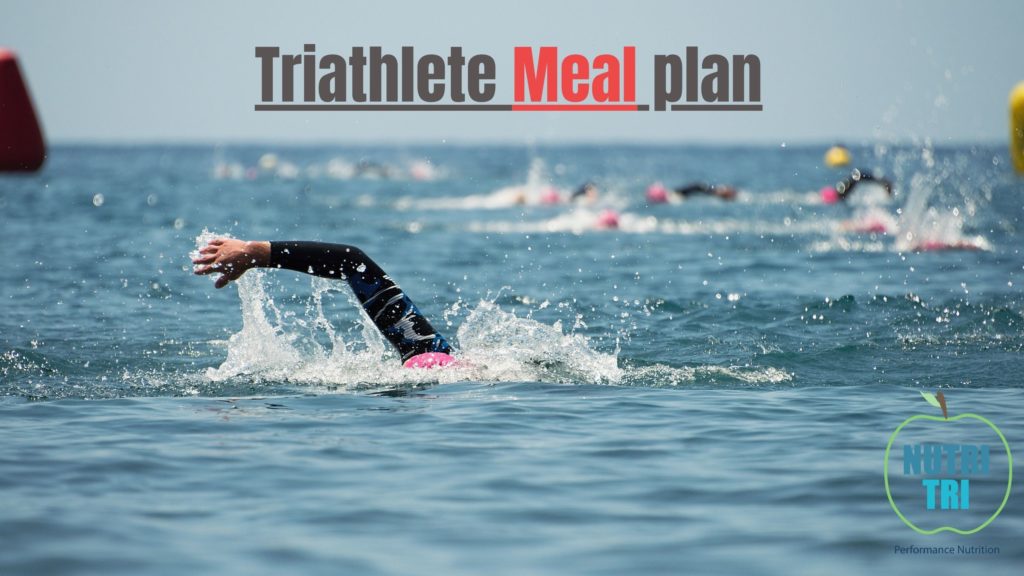
This is one of the most searched-for triathlon phrases on google, with Triathletes all over the world looking for the best nutrition plan. Sadly what I am about to tell you may disappoint you…
There is NOT a ‘best” Triathlon nutrition plan”.
There is however a triathlon nutrition plan which will work for you, you just have to find it. In this article, I am going to set out the considerations you must make when attempting to put together a meal plan.
Calories:
When we think of calories, most of us will think of weight/fat loss but this is only half of the story. In an endurance sport like triathlon, knowing how much fuel you need day to day is critical to make sure you are fuelling your triathlon training but also getting the correct nutrition to optimise your recovery. How many caloriesyou need will differ from person to person, based on your size, non-training activity levels, triathlon specific training volume and goals. To really understand calories it is useful to track them via an app like My Fitness Pal. This can seem laborious but if you are serious about making changes to your nutrition it will help and let’s be honest here, it only takes a couple of minutes a day so it is not that hard. To determine your calories, there are hundreds of formulas, however, I would suggest that you pick a number, track for a week as well as monitoring your weight, and adjust accordingly. Do however NOT consume back calories from your swim, bike, run training. All apps like Strava and devices like Garmins will overestimate your calorie burn. That said, you do need to consume more food on days you train more, how much will depend on so many factors but again, track and make those changes as you go through the process.
Macronutrient ratios:
The above refers to the amounts of protein, carbohydrates, and fats you should have in your diet. Proteins and carbs have 4 calories per gram and fats 9 calories. So for most Triathletes putting together a meal plan, the minority of calories will come from fat, the most from carbs and protein somewhere in the middle. That is of course assuming you are not a high fat, low carb convert but that is for another blog. Again these numbers will differ based on your physiology, goals, and training volume however a good rule of thumb is to aim for 0.8g of protein per pound of body weight – you can then split the remaining calorie between fats and carbs as you prefer. Aiming always though to consume the majority of your carbohydrates before and after your training.
Food quality:
As a triathlete, you are placing extra demands on your body so when putting together a meal plan this is of significant importance. There is no such thing as bad food but there are foods that will help you perform better and those that won’t. It will come as no surprise that the food a triathlete must eat more of is high quality, nutrient-dense options. That means lots of fruit and vegetables which will instantly improve your nutrition plan. Better quality carb sources include oats, rice, and potatoes. Good protein options include eggs, meat, fish, greek yogurt, and whey protein. High-quality fats include those found in nuts, avocados, seeds, and oils. This can make a diet sound a little boring, where is the pizza?
A flexible meal plan:
Food brings us pleasure so there must be foods which we enjoy. Ideally, that would mean you only eat the best, unprocessed, naturally occurring nutrient dense foods. But life is for living and there will be times we will want and need to be flexible. I certainly don’t want to be that person who goes out for dinner who won’t eat anything on the menu. Having flexibility will also make adherence easier, so yes there can be pizza but it must fit with your calories and macronutrient goals for things to work optimally. Luckily in this day and age, there are many bloggers who offer healthy and tasty recipes that allow you to eat the food you love without ruining your triathlon training – if you are stuck for ideas grab a copy of my E-Book – The Triathlete Nutrition Code which has such recipes and will also help you put together a triathlon-specific meal plan.
Conclusions:
Trial and error is one of the best ways of figuring out what works for you, however, this will take time and in some cases many years to perfect, sometimes with a series of small nutrition disasters along the way. The alternative way is to seek out help from someone who had made all of the mistakes, studied nutrition, and has built a business on great results for Triathletes just like you (see testimonials). This will fast track your results and mean you don’t have to make mistakes along the way and it can be done at a very reasonable price.
For more information on nutrition coaching, take a look around my website or arrange a free consultation.